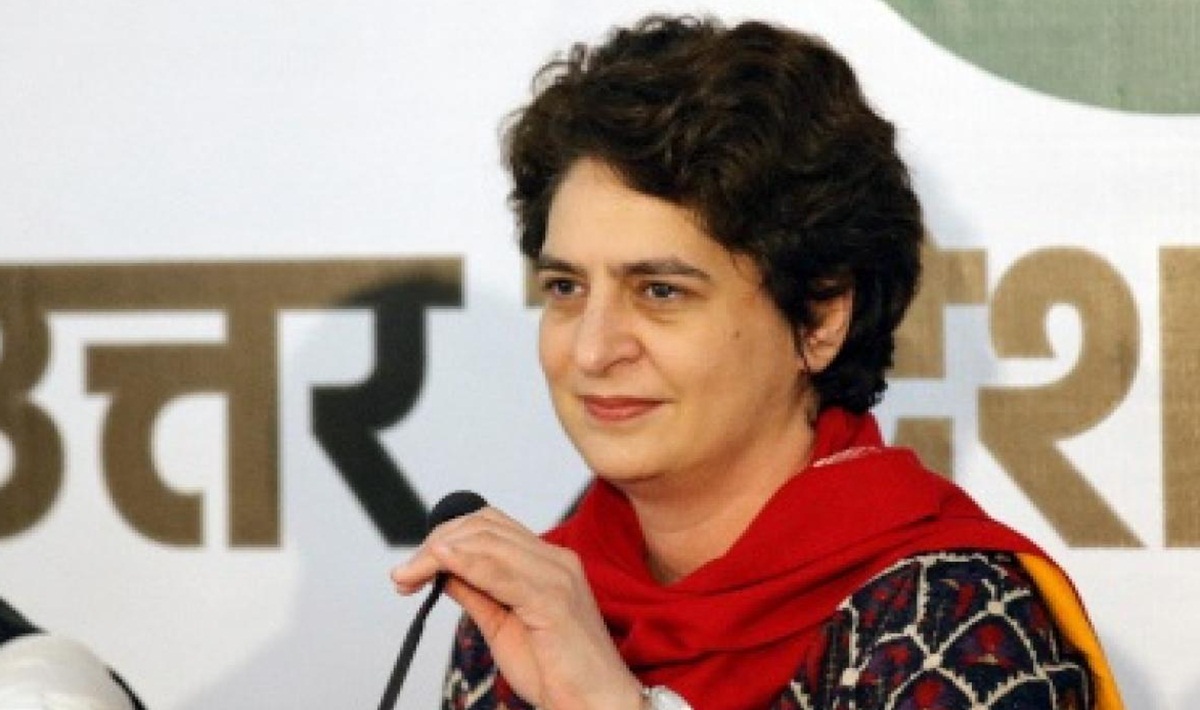X: @the_news_21
The explosive comments by expelled Congress leader Sanjay Nirupam, who hit out at the party’s multiple “power centres” before joining the rebel Shinde camp, have once again thrust the spotlight on the internal power dynamics within the grand old party. At the center of Nirupam’s allegations is K.C. Venugopal, the AICC general secretary in-charge of organization, who has emerged as a powerful figure close to Rahul Gandhi.
Nirupam’s outburst against Venugopal, accusing him of being one of the five power brokers controlling the Congress, is a reflection of the deeper turmoil and factionalism that has plagued the party for years. The former Mumbai Congress chief’s decision to defect to the Shinde Sena faction is a testament to the growing disillusionment among dissident leaders who feel sidelined by the dominant power cliques.
Venugopal, once considered a part of the “reformist” young brigade in Kerala, has undergone a remarkable transformation within the Congress ranks. From his humble beginnings as a student activist and volleyball player to becoming a Union minister and now a Rajya Sabha MP, Venugopal’s rise has been marked by his ability to navigate the complex power dynamics within the party.
According to his confidants, Venugopal’s unwavering loyalty to the Gandhi family and his willingness to “take the rap for the leadership” have endeared him to the top brass. His detractors, however, accuse him of controlling access to Rahul Gandhi and wielding undue influence over decision-making processes.
Nirupam’s allegations against Venugopal, while personal in nature, also highlight the deep-rooted factionalism that plagues the Congress. The party’s inability to maintain discipline and present a united front has been a major factor in its recent electoral setbacks, with disgruntled leaders like Nirupam choosing to defect to rival camps.
The power tussle between Venugopal, representing the established order, and Nirupam, a dissident voice, is symptomatic of the broader crisis facing the Congress. As the party grapples with internal divisions and a leadership vacuum, the clash between these two figures serves as a microcosm of the larger battle for control and ideological direction within the grand old party.
Resolving this internal strife and addressing the grievances of dissident leaders like Nirupam will be crucial for the Congress if it hopes to regain its footing in the country’s political landscape. Failure to do so could further erode the party’s support base and pave the way for more high-profile defections, ultimately undermining its relevance on the national stage.
Also Read: BJP Slams Congress Manifesto: Photos of New York, Thailand Reflect Lack of Seriousness








cost cheap clomiphene without a prescription clomiphene cost australia clomiphene tablets price in pakistan where can i buy generic clomiphene pill where to buy cheap clomiphene pill clomiphene for sale australia clomid or nolvadex for pct
Greetings! Very useful recommendation within this article! It’s the scarcely changes which liking obtain the largest changes. Thanks a a quantity in the direction of sharing!
More posts like this would create the online space more useful.
where to buy semaglutide without a prescription – purchase periactin pill purchase periactin sale
order domperidone 10mg without prescription – motilium over the counter cyclobenzaprine price
buy inderal without a prescription – brand plavix buy methotrexate 2.5mg for sale
amoxil online buy – generic combivent 100mcg purchase combivent online cheap
zithromax buy online – oral zithromax order bystolic 20mg pills
order amoxiclav online – https://atbioinfo.com/ ampicillin price
buy esomeprazole 20mg capsules – https://anexamate.com/ esomeprazole 20mg for sale
purchase coumadin sale – anticoagulant oral hyzaar
meloxicam where to buy – https://moboxsin.com/ mobic over the counter
deltasone 40mg pill – apreplson.com generic prednisone 10mg
ed pills – https://fastedtotake.com/ medications for ed
Thank you, your article surprised me, there is such an excellent point of view. Thank you for sharing, I learned a lot.
buy amoxil without prescription – https://combamoxi.com/ buy amoxicillin
order diflucan 200mg – https://gpdifluca.com/ order fluconazole online cheap
buy cenforce tablets – how to get cenforce without a prescription cenforce 50mg cheap
what doe cialis look like – this what does cialis do
cialis super active reviews – https://strongtadafl.com/ how to get cialis prescription online
buy generic zantac for sale – https://aranitidine.com/# order zantac online
sildenafil tablets 100 mg – https://strongvpls.com/# sildenafil citrate tablets 50 mg
More articles like this would remedy the blogosphere richer. https://gnolvade.com/
This is the type of delivery I recoup helpful. https://ursxdol.com/synthroid-available-online/
Thanks on sharing. It’s outstrip quality. https://prohnrg.com/product/metoprolol-25-mg-tablets/
This is the tolerant of delivery I unearth helpful. click
With thanks. Loads of conception! https://ondactone.com/spironolactone/
More posts like this would make the online elbow-room more useful.
buy propranolol generic
The reconditeness in this ruined is exceptional. http://www.underworldralinwood.ca/forums/member.php?action=profile&uid=488140
purchase forxiga generic – https://janozin.com/ buy forxiga 10mg pills
buy xenical pills for sale – https://asacostat.com/# buy xenical no prescription
Thanks for putting this up. It’s okay done. http://www.gearcup.cn/home.php?mod=space&uid=146371
You can shelter yourself and your dearest by way of being cautious when buying panacea online. Some pharmacopoeia websites control legally and put forward convenience, privacy, cost savings and safeguards to purchasing medicines. buy in TerbinaPharmacy https://terbinafines.com/product/cozaar.html cozaar
With thanks. Loads of expertise! cefdinir 300mg canada
This is the stripe of glad I enjoy reading.
Với giao diện mượt mà và ưu đãi hấp dẫn, MM88 là lựa chọn lý tưởng cho các tín đồ giải trí trực tuyến.
kuwin sở hữu kho game đa dạng từ slot đến trò chơi bài đổi thưởng, mang đến cho bạn những giây phút giải trí tuyệt vời.
Tham gia cộng đồng game thủ tại Go88 để trải nghiệm các trò chơi bài, poker phổ biến nhất hiện nay.
Thanks for sharing. I read many of your blog posts, cool, your blog is very good.
betmgm WV betmgm-play betmgm sportsbook